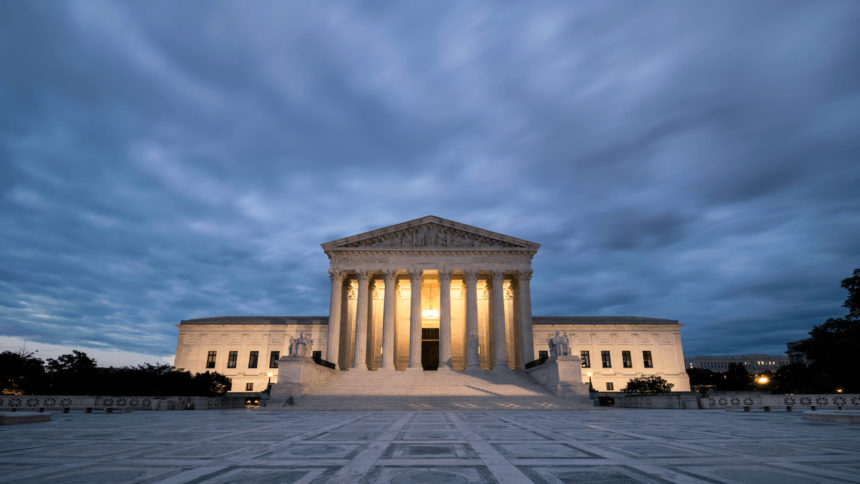The Supreme Court said Monday that it will hear a case to determine where the burden of proof lies for an employer claiming to be exempt from paying overtime pay to employees who work more than 40 hours a week.
The case, E.M.D. Sales v. Carrera, will be heard when the court reconvenes for a new session in October.
The Fair Labor Standards Act requires covered employers to pay workers a minimum wage and, for certain employees who work more than 40 hours in a week, overtime pay of at least 1.5 times the employee’s regular rate of pay.
The current salary threshold for overtime pay exemption is $35,568 per year or $684 per week — anyone making less than that amount is entitled to overtime pay, according to the Department of Labor. Effective July 1, the threshold is increasing to $43,888 per year, or $844 per week.
The plaintiff in the case to come before the Supreme Court, according to court records, noted that the FLSA includes 34 exceptions to the overtime rule. The plaintiff, a distributor of groceries to local food stores, claims an exemption to the overtime rule because the company has no parent corporation and because no publicly held company owns 10% or more of its stock.
Three sales representatives of the distributor, E.M.D. Sales, filed the lawsuit. The company distributes Latin American, Caribbean and Asian foods to grocery stores in the Washington, DC, area, attorney Amy L Howe, an independent contractor and reporter for SCOTUSblog, said in a blog post.
“The sales reps contended that because they worked 60 hours per week, they were entitled to overtime. But the company countered that the sales reps were ‘outside salesmen,’ who are exempt from the overtime requirement,” Howe wrote. “The issue that the justices agreed to decide was whether the company must provide ‘clear and convincing evidence’ that the exemption applies, or whether it must merely make that showing by a preponderance of the evidence.”
The 4th US Circuit Court of Appeals ruled in the case that the company failed to meet the threshold of the “clear and convincing evidence” standard. The company disagreed and now is asking the Supreme Court to weigh in on its burden of proof to show that the workers were outside salespeople rather than employees.
“The question presented cries out for this court’s review. What burden of proof governs FLSA exemptions is a question of national importance,” the plaintiff said in a court filing. “The FLSA’s exemptions are one of the most frequently litigated issues in federal employment law. And the burden of proof obviously matters.”



